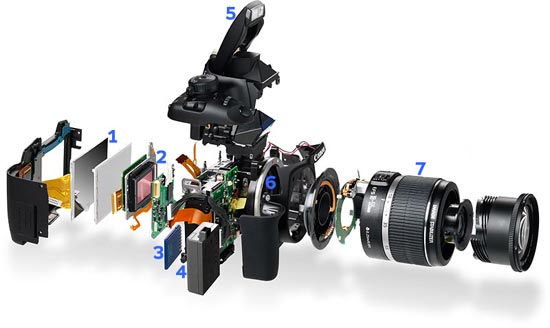 ISO, F-stops, aperture, sensors, SLR, megapixels, exposure, bridge, aspect ratio, metering, focal length, Nikon, Canon, Sony, Olympus… I have this funny feeling that I’m not the only one who is overwhelmed with fancy technical jargon and choice when trying to make a purchase, which in this instance happened to be a camera.
ISO, F-stops, aperture, sensors, SLR, megapixels, exposure, bridge, aspect ratio, metering, focal length, Nikon, Canon, Sony, Olympus… I have this funny feeling that I’m not the only one who is overwhelmed with fancy technical jargon and choice when trying to make a purchase, which in this instance happened to be a camera.
The great thing about walking into a store is that there’s normally a friendly sales associate to help sift through the hundreds of options and choices available.
In this clip I put a helpful, friendly sales associate at Curry’s in London to the test. Although I have some basic camera knowledge, I’m definitely no pro, so having any information is definitely welcomed when parting with my hard-earned cash. As you’ll see in the clip the sales associate had some rudimentary insights into the array of cameras Currys had to offer. However there were many instances where he simply didn’t have the knowledge to answer my question, so much so that he even suggested using comparison websites to help me make a decision and work through the endless list of specifications.
)
The question I had to ask myself was not, “should the sales associate be expected to provide information on tap about all two hundred models displayed?”, but rather “how do brands utilize the abundance of information available on the Internet in their brick and mortar stores?” I guess it was no surprise that when asking what most customers purchased the immediate answer was “whatever was on offer”. It’s funny how all we ever want is choice, but when given it we don’t know what to choose.
Why is that? Lets get scientific…
In 2004, American psychologist Barry Schwartz published a book called The Paradox of Choice: Why More Is Less, in which he describes how most people make their purchase decisions: “There are now several books and magazines devoted to what is called the “voluntary simplicity” movement. Its core idea is that we have too many choices, too many decisions, too little time to do what is really important. […]”.
Schwarz goes on to bring up the work of psychologist Herbert A. Simon, and “notes some important distinctions between, what Simon termed, maximizers and satisficers. A maximizer is like a perfectionist, someone who needs to be assured that their every purchase or decision was the best that could be made. The way a maximizer knows for certain is to consider all the alternatives they can imagine. This creates a psychologically daunting task, which can become even more daunting as the number of options increases. The alternative to maximizing is to be a satisficer. A satisficer has criteria and standards, but a satisficer is not worried about the possibility that there might be something better. Ultimately, Schwartz agrees with Simon’s conclusion, that satisficing is, in fact, the maximizing strategy”.
Now that we have all this choice, particularly with a practically limitless online selection of products, we need to work out how filter through it and make a decision. Retailers can do quite a bit to help us decide - and if we agree with the psychological hypotheses stated above, perhaps just simplifying this ever-growing flow of information to the bits and bytes that matter us as individuals would be enough to get the sale.